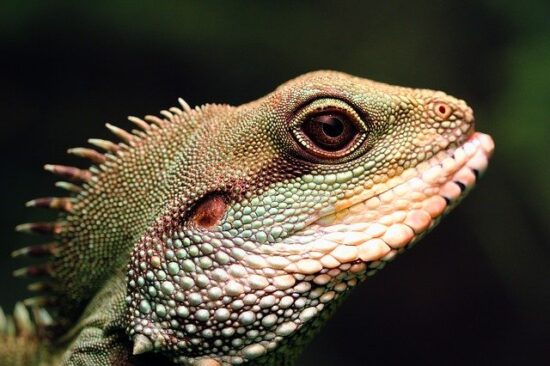There are numerous exotic pets globally. More and more owners are choosing to keep less traditional pets.
Some people think this is nonsensical. So, this article discusses why people would prefer non-traditional pets and what to consider when selecting.
Do you know what an exotic pet is? While the intuitive answer may be the most correct, the answer is much more difficult than many people realize!
They are not traditional pets i.e., dogs, cats, rabbits, guinea pigs, etc. There is a vast range of other species, including reptiles (lizards, tortoises, snakes), birds (ferrets, sparrows, etc.), and smaller mammals (mosquitoes, hedgehogs, raccoons), etc.
If you’re thinking of getting foods like Dubia roaches, check out these High-Quality Dubia Roaches.

Why Keep Them?
The advantages of having pets are quite well-known. These benefits may include better social connections. For example, when taking your dogs out for a walk, you can meet
However, many people might be asking if exotic pets can be treated like dogs in this way. Many owners have very close relationships with their unfamiliar pets and can actively interact with almost any pet.
However, the main advantage of many exotic species (especially reptiles) is that they require less time and attention. It is difficult for a family that works all day to provide their dog with adequate stimulation, exercise, and interaction.
However, the demand for reptiles will decrease significantly, and it may be easier for such families to become financially involved in providing and maintaining the environment that reptiles need.
And the social aspect? Many exotic pet owners are active on the internet and social media. They also built up associations of individuals with shared goals or have formed national or international clubs and organizations.
Here are some amazing alternatives for your aquarium.
FAQ’s
Because of several possible pet species, this article is insufficient to satisfy the questions regarding all species. However, below are some common problems we encounter.
Here are some fun facts about animals!
Are these Wild Animals?
We believe that most “exotic” animals have not been domesticated or have been domesticated for a shorter time than dogs and cats. Interestingly, ferrets have been domesticated longer than cats.
However, that doesn’t make them “crazy.” Very few are harvested in the wild; almost all of them captive bred in the region. As a result, none of them is “wild,” and even when released in their natural environment, they rarely survive. As a result, more of these animals have “adapted” to life in captivity.
Many people confuse exotic pets with zoo animals because they are kept as pets, like many pet tiger and lion horror stories in other countries.
The Dangerous Wildlife Act, which enables animal farms to conduct checks to serve protection and animal health requirements, controls these dangerous animals. These animals have virtually no issues as a result.
Do they Carry Infections?
Infections from exotic animals are publicized to some extent. Perhaps the most famous is the threat of reptilian salmonellosis. Bacteria is a typical reptile gut inhabitant.
Human diseases do occur, particularly in comparison to infectious diseases from several other sources, especially food. Every animal poses a risk of infection, such as toxoplasmosis in cats. Pet owners should still remember personal care when treating pets.
However, when choosing a pet, always consider the disease’s risk, especially if you have children under 5 or immunocompromised people at home.
Reptile owners are advised to read the government factsheet: Reducing the risk of reptile infection with Salmonella.
Can they Damage the Environment?
While some wild “exotic” fauna is well-known (e.g., parrots), there is little evidence of actual environmental damage, except in local areas, although its impact can be adequately monitored.
Moreover, few of these people come from pet owners and more from private collections or accidental imports. Most people don’t breed in the region (red ear sliders, for example), limiting their impact.
However, it is certainly possible to accidentally introduce species that can breed here, which explains the new law that prevents certain species (e.g., raccoons, large raccoon dogs, etc.) from continuing to own property.
It should also be emphasized that almost any species’ harmful pets’ abandonment is a complete breach of animal welfare laws.
Are they Difficult to Keep?
Of course, exotic pets are hard to keep, but they’re all the same. The main part is knowing their needs when buying and recognizing that different animals have unique requirements.
We are traditionally used to keeping heat-absorbing mammals, but reptiles are ectothermic animals that absorb heat from their surroundings.
Both reptile species, even turtles, need to have an amount of energy and an average temperature, which imitates their natural habitat. Remember – if it’s not from the region, it may not like the weather!
Do Vets Know About Them?
It’s worth considering and examining it before your pet gets sick or an emergency occurs. In certain places, veterinary expertise is increasing, and it is challenging for doctors to comprehend all animals fully.
While a vet should provide immediate help to any pet, experts recommend that the owner find the nearest vet and learn more about their experience regarding your pet.
It’s better to consider one before there are any complications. If you’re lucky, there will be people nearby.
However, if you’re too far from your nearest vet, it’s worth considering what to do when your pet is sick. It could mean reconsidering your options or contacting your local non-specialized veterinarian to assess their interest in your species.
Overview
Again, an in-depth study of the selected pet is key as this affects the size and space of the fence required or if you need multiple barriers.

Leave a Reply